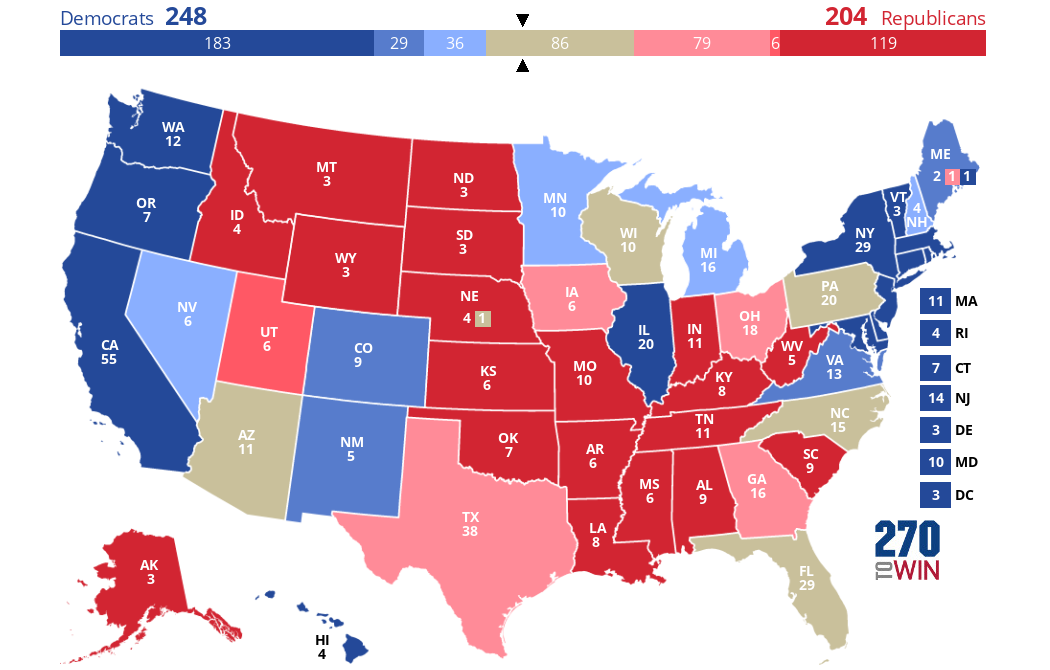Can We Please Pick the President by Popular Vote Now?
The Supreme Court’s unanimous decision in the “faithless electors” case is another reminder of how antiquated and undemocratic the Electoral College is.
Mr. Wegman is a member of the editorial board and the author of book about the Electoral College.
The Supreme Court clearly got it right on Monday when it ruled that the Electoral College can keep working the way it has worked for the last 200 years.
The justices did not address the much bigger problem, which is the existence of the Electoral College itself.
In a unanimous opinion written by Justice Elena Kagan, the court agreed that states may replace and even punish “faithless electors,” the curious term we use for the direct electors of the president who cast their ballots for a candidate other than their party’s nominee.
According to the Constitution’s plain language, each state appoints its electors “in such manner as the legislature thereof may direct.” That power, Justice Kagan wrote, “includes power to condition his appointment — that is, to say what the elector must do for the appointment to take effect.”_________________________________________________________________________________

There are 32 states (plus the District of Columbia) that require electors to vote for a pledged candidate. Most of those states (16 plus DC) nonetheless do not provide for any penalty or any mechanism to prevent the deviant vote from counting as cast. Five states provide a penalty of some sort for a deviant vote, and 13 states provide for the vote to be canceled and the elector replaced (two states do both). The constitutionality of these laws was upheld by the Supreme Court in
Chiafalo v. Washington on July 6, 2020.
The Uniform Law Commission has drafted and recommended a law called the Uniform Faithful Presidential Electors Act that provides for electors to pledge to vote for a candidate, and for them to be replaced with an alternate in the event that they do not vote as pledged. As of October 2019, that Act has been adopted by Indiana, Minnesota, Montana, Nebraska, Nevada, and Washington.
__________________________________________________________________________
RELATED
4 days ago
Faithless Elector State Laws
About FairVote
Our Mission: FairVote is a nonpartisan champion of electoral reforms that give voters greater choice, a stronger voice, and a representative democracy that works for all Americans.
What We Do: FairVote has a proven record since 1992 as a nonpartisan trailblazer that advances and wins electoral reforms at the local, state, and national level through strategic research, communications and collaboration. Today we are the driving force behind advancing ranked choice voting and fair representation in multi-winner legislative districts that will open up our elections to better choices, fairer representation and more civil campaigns

There are 32 states (plus the District of Columbia) that require electors to vote for a pledged candidate. Most of those states (16 plus DC) nonetheless do not provide for any penalty or any mechanism to prevent the deviant vote from counting as cast. Five states provide a penalty of some sort for a deviant vote, and 13 states provide for the vote to be canceled and the elector replaced (two states do both). The constitutionality of these laws was upheld by the Supreme Court in
Chiafalo v. Washington on July 6, 2020.
The Uniform Law Commission has drafted and recommended a law called the Uniform Faithful Presidential Electors Act that provides for electors to pledge to vote for a candidate, and for them to be replaced with an alternate in the event that they do not vote as pledged. As of October 2019, that Act has been adopted by Indiana, Minnesota, Montana, Nebraska, Nevada, and Washington.
__________________________________________________________________________
RELATED
4 days ago
LATEST
2020 Presidential Election Interactive Map
This isn’t a popularity contest™
It will take 270 electoral votes to win the 2020 presidential election.
Click states on this interactive map to create your own 2020 election forecast. Create a specific match-up by clicking the party and/or names near the electoral vote counter



